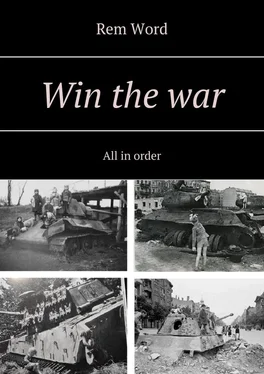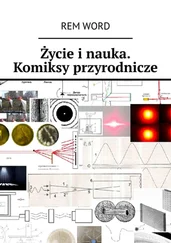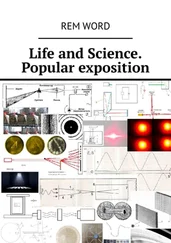Rem Wоrd - Win the war. All in order
Здесь есть возможность читать онлайн «Rem Wоrd - Win the war. All in order» — ознакомительный отрывок электронной книги совершенно бесплатно, а после прочтения отрывка купить полную версию. В некоторых случаях можно слушать аудио, скачать через торрент в формате fb2 и присутствует краткое содержание. ISBN: , Жанр: История, Справочники, Политика, Биографии и Мемуары, на английском языке. Описание произведения, (предисловие) а так же отзывы посетителей доступны на портале библиотеки ЛибКат.
- Название:Win the war. All in order
- Автор:
- Жанр:
- Год:неизвестен
- ISBN:9785449662637
- Рейтинг книги:5 / 5. Голосов: 1
-
Избранное:Добавить в избранное
- Отзывы:
-
Ваша оценка:
- 100
- 1
- 2
- 3
- 4
- 5
Win the war. All in order: краткое содержание, описание и аннотация
Предлагаем к чтению аннотацию, описание, краткое содержание или предисловие (зависит от того, что написал сам автор книги «Win the war. All in order»). Если вы не нашли необходимую информацию о книге — напишите в комментариях, мы постараемся отыскать её.
Win the war. All in order — читать онлайн ознакомительный отрывок
Ниже представлен текст книги, разбитый по страницам. Система сохранения места последней прочитанной страницы, позволяет с удобством читать онлайн бесплатно книгу «Win the war. All in order», без необходимости каждый раз заново искать на чём Вы остановились. Поставьте закладку, и сможете в любой момент перейти на страницу, на которой закончили чтение.
Интервал:
Закладка:
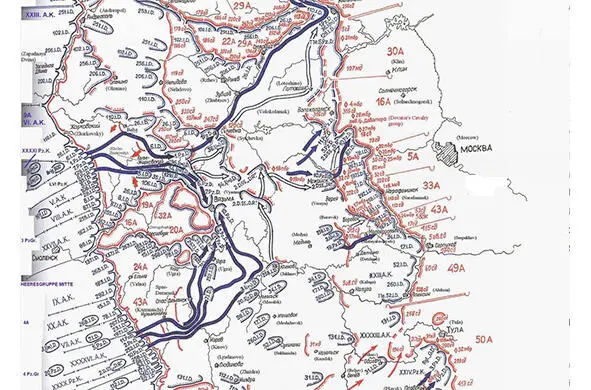
Vyazemsky defensive operation, October 2—13, 1941. Catastrophe. To the west of Vyazma, the forces of Army Group «Center» surround four Soviet armies. The irretrievable loss of the Red Army – 250 thousand people, and 600 thousand prisoners. Losses Wehrmacht unknown. Now only scattered small Red Army detachments remain before Moscow
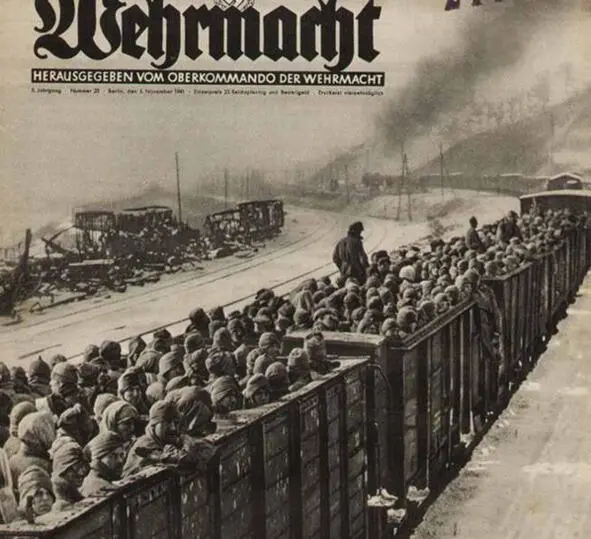
Carried in freight cars like cattle, soldiers captured in the Vyazma boiler. Photo on the cover of a German newspaper. October 1941
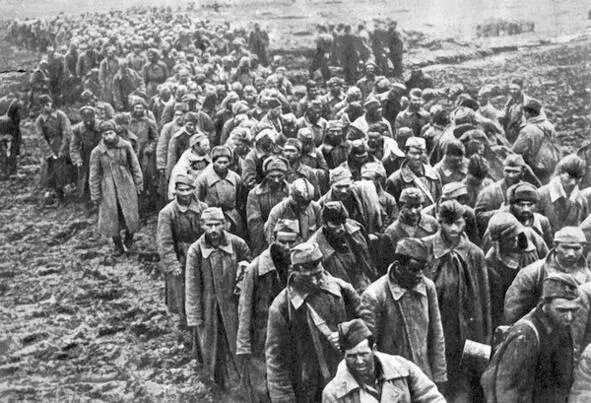
Captured from Vyazemsky boiler. Autumn 1941
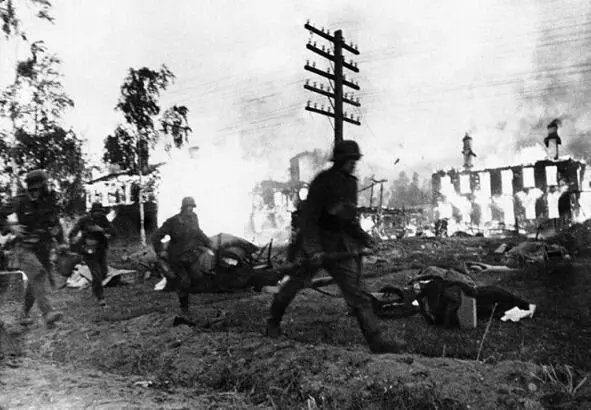
Soldiers of Army Group North in the suburbs of Leningrad. The offensive is somewhat delayed. Residents of the city manage to create the necessary fortifications. Defense effectively keep heavy tanks KV-1 and KV-2, manufactured by the Kirov plant
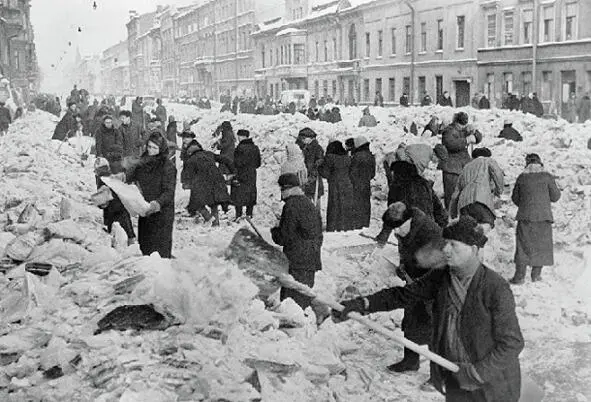
September 8, 1941 Leningrad, the second largest and most important city of the USSR, as well as the surrounding areas are surrounded. The rates of distribution of bread, the main or only food in the first two months are reduced five times. Since November 20, the minimum bread-making rate (for employees, children and dependents) is 125 g. We will read several pages from the story of front-line writer Nikolai Nikulin («Memories of War»). «… In the spring of 1941 in Leningrad, many felt the approach of war. Informed people knew about her preparation, the inhabitants were alarmed by rumors and gossip. But no one could have imagined that within three months after the invasion the Germans would be at the walls of the city, and in six months every third inhabitant would die a terrible death from exhaustion. Moreover, we, yellow-headed chicks, who had just left the school, did not think about what was coming. But the majority was destined to die in the swamps near Leningrad soon. Others, those few who return, waited a different fate – to remain crippled, legless, armless, or turn into neurasthenics, alcoholics, forever lose composure. The declaration of war, I, and, as it seems, the majority of the inhabitants met, not so indifferently, but somehow alienated. We listened to the radio, talked. We expected quick victories of our army, invincible and the best in the world, as it was constantly written in the newspapers. Battles so far played out somewhere far away. About them came less news than about the war in Europe. In the first days of war, a peculiar holiday atmosphere developed in the city. It was clear, sunny weather, green gardens and squares, there were a lot of flowers. The city was adorned with ineptly executed posters on military themes. The streets came to life. Many new recruits in a new form were busily walking along the sidewalks. Everywhere you could hear singing, the sounds of phonographs and accordions: the mobilized hurried to get drunk one last time and celebrate their departure for the front. … There was still food in the stores, and the queues did not look gloomy.»
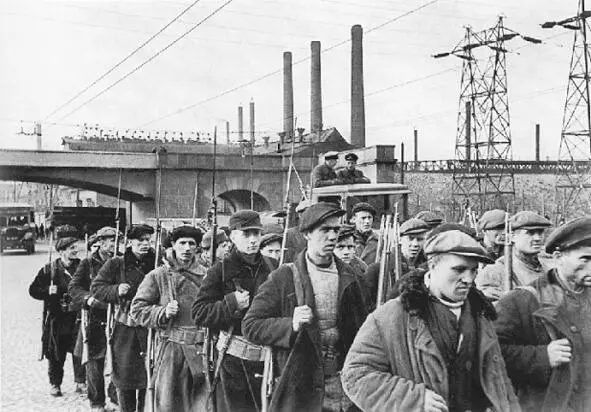
A part of workers not engaged in military production is sent to the front. Photography – workers of the Kirov factory. The line of fortifications is sometimes only 5—7 kilometers from important industrial sites, and 16 km. from the Winter Palace… N. Nikulin: «… The houses were transformed. Everywhere, the glass of the windows was crossed crosswise with strips of paper. Storefronts were scored and covered with sandbags. Inscriptions appeared on the walls – signs of bomb shelters and shelters. Observers were on duty on the roofs. Anti-aircraft guns were installed in the gardens, and some not-so-young people in wide ski pants marched there from morning to evening and were stuffed with bayonets. On the streets, girls in ridiculous riding breeches and poorly made tunics appeared every now and then. They carried monstrously sized gas balloons for barrage balloons that rose above the city on long cables. Recalling the huge fish, they clearly loomed in the cloudless sky of the white nights. And the war, meanwhile, was going on somewhere. Something was happening, but no one really knew anything. In the hospital began to bring the wounded, mobilized left and left. The scene of the sending of marines ran into the memory: right in front of our windows overlooking the Neva River, soldiers fully armed and equipped were loaded onto a pleasure boat. They quietly waited for their turn, and suddenly a woman ran up to one of them with a loud cry. She was persuaded, reassured, but without success. The soldier was tearing his hands together convulsively, and she continued to cling to the duffel bag, the rifle, the gas mask bag. The boat swam away, and the woman howled for a long time, banging her head against the granite parapet of the embankment. She felt what I learned much later: neither the soldiers, nor the boats, on which they were sent to the landing, no longer returned.»
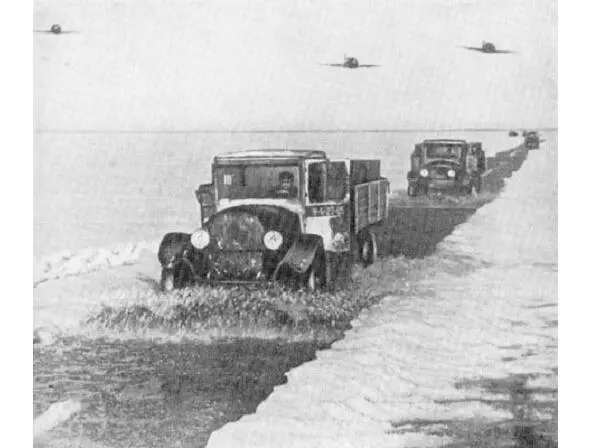
On the ice of Lake Ladoga, bypassing the positions of the Wehrmacht, the «Road of Life» is being laid. Under attacks from the air, grain is brought into the city. Children are evacuated on return flights. From December 25, 1941, the norms for bread production are somewhat increasing. N. Nikulin: «… Then we all signed up for the militia… We were given rifles, ammunition, food (for some reason, herring – apparently what was at hand) and loaded onto a barge that stood near the Malaya Neva River. And here for the first time I was saved by my Guardian Angel, who took on the image of an elderly colonel, who ordered everyone to disembark from the barge and build ashore. At first we did not understand anything, and the colonel carefully looked at everyone with his red eyes for insomnia and ordered several to break down. Among them was me. «Go home! Said the colonel. «And without you, the snotty, TAM is sickening!» It turns out that he was trying to fix something, to do it properly, to prevent the senseless death of yellow-headed youths. He found time and energy for this! But I understood all this later, and then returned home, to the bewildered family…The barge, meanwhile, proceeded along the Neva and beyond. On Volkhov, it was rumored to have bombed and drowned Messerschmitts. The militiamen were sitting in the holds, the hatches of which the prudent bosses ordered to lock-so that good things would not run away, darling!I returned home, but a week later I received a formal mobilization agenda … ”
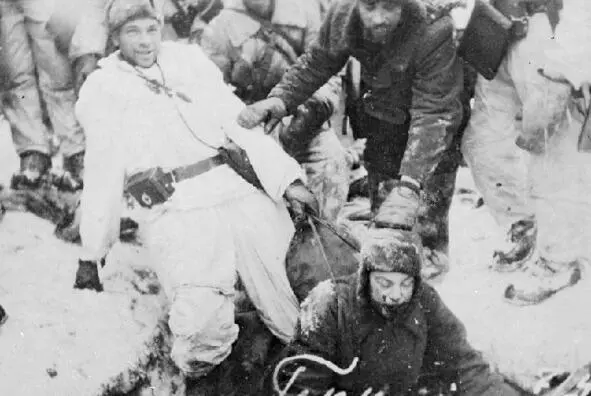
Finnish soldiers pose with tortured Soviet prisoners of war, early 1942. In the summer and autumn of 1941, Finland regains territories lost in the Winter War. The German-Finnish Karelian army continues the offensive, seizes Petrozavodsk and blocks Leningrad from the north. In the occupied territories, the Finns carry out segregation of the population according to their nationality. All responsible Soviet officials, business leaders, newspaper editors, police officers, and the like, are sent to concentration camps. A justified hatred of the Bolshevik regime, the Finns mingle with nationalist aspirations. Finland is hardly better than fascist Germany. The ambitions of a sparsely populated country are not shackled by spiritual ideals, but only by its technical capabilities. But, July 30—31, an ally of the USSR, the UK inflicts air strikes on Petsamo and Kirkenes. Damaged ship, two go to the bottom. British Air Force lost 16 aircraft.After this prelude, December 6, 1941, the United Kingdom declares war to Finland.One way or another, Suomi refuses to conduct active hostilities. N Nikulin:“… In early November, we were returned to the cold, without glasses, Leningrad barracks. Before being sent to the front, the companies were instructed to patrol the city. Checked documents, detained suspicious. Among the latter were the entourage, who came out of the Luga and other "boilers". They were terribly emaciated people – bones covered with brown weathered skin …The city was very different from what it was in August. Everywhere traces of splinters, a lot of houses with destroyed facades, opened the apartment as if in a section: in some places were kept on the remnants of the floor bed or chest of drawers, on the walls there were clocks or paintings. It's cold, dank, gloomy. Klodt horses removed. Yusupov Palace is damaged. From the bottom to the top of the Museum of Ethnography there is a huge crack. The spiers of the Admiralty and the Peter and Paul Cathedral are in dark cases, and the dome of Isaac is painted in neutral paint for masking. In the squares buried anti-aircraft guns. Occasionally, German shells rush with a howl and rush away. Dimensionally knocking metronome. The wind is wearing yellow foliage, branches, some dirty paper … "
Читать дальшеИнтервал:
Закладка:
Похожие книги на «Win the war. All in order»
Представляем Вашему вниманию похожие книги на «Win the war. All in order» списком для выбора. Мы отобрали схожую по названию и смыслу литературу в надежде предоставить читателям больше вариантов отыскать новые, интересные, ещё непрочитанные произведения.
Обсуждение, отзывы о книге «Win the war. All in order» и просто собственные мнения читателей. Оставьте ваши комментарии, напишите, что Вы думаете о произведении, его смысле или главных героях. Укажите что конкретно понравилось, а что нет, и почему Вы так считаете.
